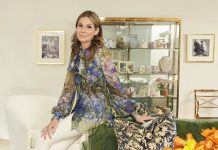Often we think of goldfish simply as a small fish kept in a bowl on a table.
However, do you know that goldfish are able to grow 100 times larger but are kept small because of the size of the bowl? The same is true for a bonsai tree.
We also restrict ourselves by placing ourselves in small places. As a therapist I often see how clients come in with limited beliefs, and how this makes their lives limited. These beliefs often come from something we were told as a child. It might be a parent who told us we could not do something because of their own limited beliefs, or a teacher who called us the problem child, or classmates who teased us because of their own insecurities.
When we internalize and personalize these projections, we limit our potential and we do not even realize it because it is what we know.
After growing up in special education classes and being teased as a child, I truly believed I was stupid and not capable of going far in life. I believed it at the deepest part of myself.
However, after starting therapy myself when I was 19, I was slowly able to see that was a limited thought that had no basis but had crept into my core through the judgement of others and their limitations, and fear of feeling less than.
There is also the issue of how we keep ourselves small because we want to fit in. When you see people who are living to their potential, they see their full potential and ignore the limitations that others put on them.
There are so many stories out there of how people have overcome their limitations. Imagine if Stevie Wonder, who has received 25 Grammy awards yet has been blind since birth, believed he was limited, or Academy Award-winning actress Marlee Matlin, who has appeared on many television shows such as “Law & Order,” “ER” and “The West Wing” yet is deaf.
Oprah Winfrey, one of the richest and influential women in the world, was born to a poor teenage single mother, and herself had a son when she was only 14 who died soon after birth.
One of my favorites is Albert Einstein, who got rejected from college for failing the entrance exam, yet he wrote some of the most important scientific theories to this day. Another favorite, Helen Keller, lost both her sight and hearing at 18 months of age, yet became an amazing motivator for women. To this day, her quotes are well read and applicable, such as “The only thing worse than being blind is having sight but no vision.”
So what is the difference between those who overcome their challenges and those who do not?
People who are able to overcome their challenges use some of these skills to help them live out their purpose.
- They know that challenges are part of life. They allow themselves to grieve the adversity, but do not get stuck in it. We get stuck when we add suffering to our pain. Pain is part of life, but suffering does not have to be.
- They always are working on building their emotional and intellectual strengths, their courage, and their ability to fall down and get back up, and their resilience.
- They build their support system, be it through their spiritual beliefs, family, friends, and community involvement.
- They always, and I mean ALWAYS learn from their challenges. Listen to what it is inviting them to learn and then help others to manage the same challenges.
“I am here for a purpose and that purpose is to grow into a mountain, not to shrink to a grain of sand,” wrote Og Mandino. “Henceforth will I apply ALL my efforts to become the highest mountain of all and I will strain my potential until it cries for mercy.”
What does your mountain look like?
Contact Dr. Zavala at DrZavala@mac.com or DrZavala.com.




